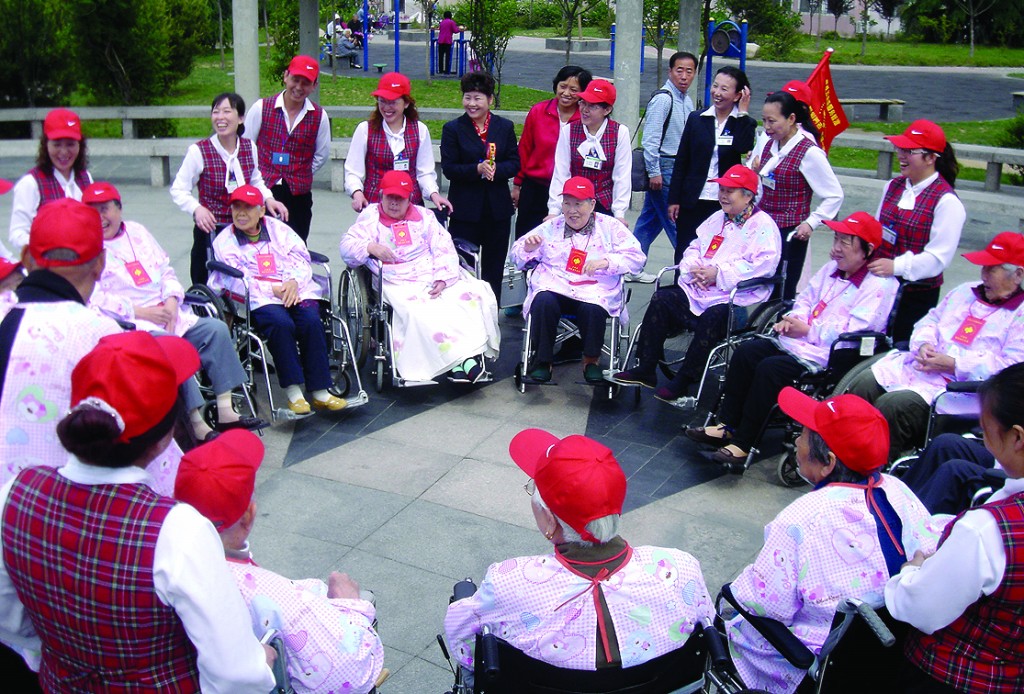Nursing home scarce for China's elderly
- By Zhang Ming'ai
 0 Comment(s)
0 Comment(s) Print
Print E-mail China.org.cn, March 28, 2012
E-mail China.org.cn, March 28, 2012
For Zhang Yinsheng, 90, the stairs leading to his home kept getting longer and steeper every day.
It didn't always feel like this. Zhang recalled 20 years ago, when he often went to the market for vegetables in the morning and came home in the evening to cook with wife Li Yuzhen. The retired couple lived a very casual life, raising flowers and drawing pictures.
"We are happy to live our lives like this," Zhang said. Living in a nursing home was the last thing in his mind.
A couple of unfortunate incidents made him change his mind. First, he left the fire burning on the stove after cooking, and a neighbor had to kick down his door after noticing the smoke. Later, his wife was hit by a car while taking a stroll. Luckily, she was able to recover in half a year.
During the recover, however, the couple had to rely on the care of their children, themselves around 70 years old.
"They fear that we might die in our home," Li said, who couldn't help but feel sad watching their children, hair white and faces wrinkled, climbing those stairs every day. No longer wanting to burden their children, and disappointed with the underfunded and understaffed community day care centers, the couple decided to find a nursing home for professional care, while discovering a whole new set of problems in the process.
According to a CPPCC report, China's population is undergoing the largest and most rapid age shift in history, presenting daunting challenges for society to care for the elderly. By the end of 2011, nursing homes across the country offered 3.15 million beds, accounting for less than 2 percent of the country's retired citizens.






